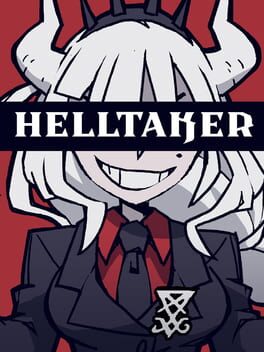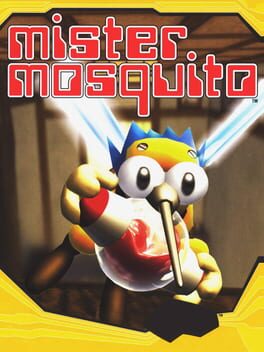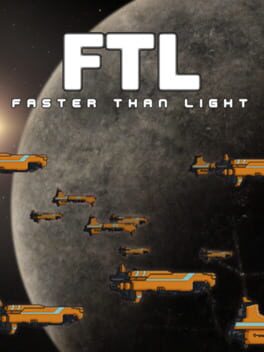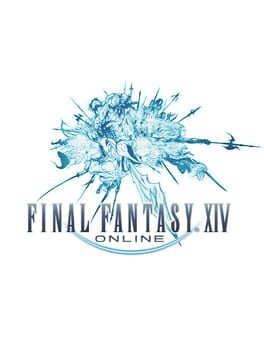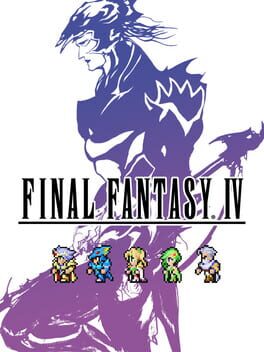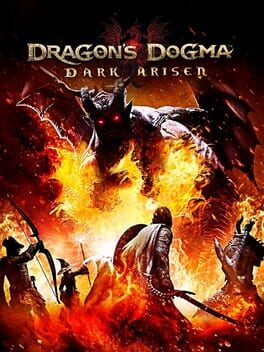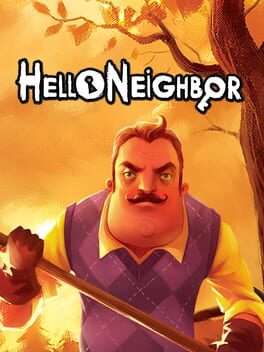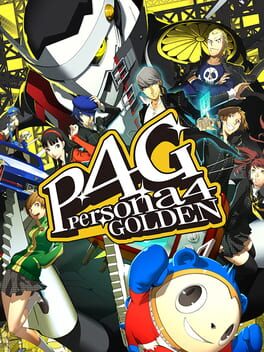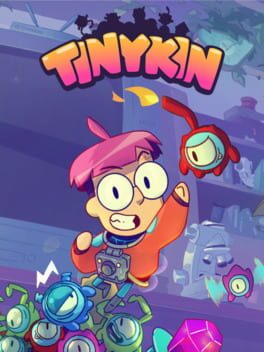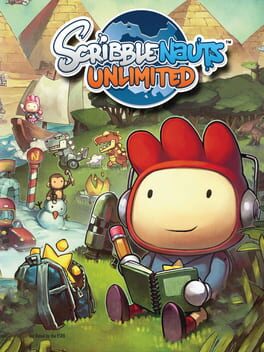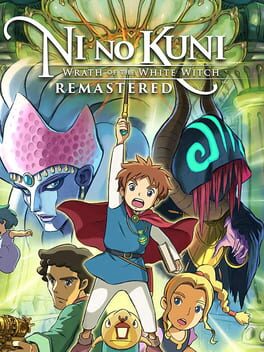Fumio
2020
2020
2001
It's Summer
Do you like Summer?
There's something otherworldly about this game, a sense of the surreal established by the almost ethereal female narrator. She speaks with a monotonous cadence, the tone of her voice only slightly inflected as she drones on for nearly two straight minutes as the game's camera slowly pans over the Yamada family home. She speaks slowly. Her sentences don't feel complete and at times disconnected from one another. Two lines at the very start almost seem as if they serve no place in the game at all;
"Summer drives people crazy
And that makes them commit terrible acts"
Maybe unbeknownst to the player about to embark on this three hour journey; those two lines set up the game's story with surprising competency as a foreshadowing device. The narrator proceeds to inform you that you are the game's titular mosquito, and that you must suck blood. She cautions you of the contempt that the Yamada family will come to harbor for your actions - but she also reassures you that you are a harmless creature simply fighting for your survival. She proceeds into the Yamada family home alongside you, and throughout the game she gently guides you from stage to stage. Her help is quintessential in your success, as she offers an omniscient viewpoint on the Yamada family and the dangers they present to you in their efforts to combat the terror you've brought into their home. She is your only companion, almost seeming concerned for you even as the lowly and itchy mosquito you are.
I believe the narrator is none other than the voice of god.
Yet somehow this concept seems to fit neatly with the rest of the game as it blurs the lines of fiction and reality. The Yamada trio are written in a believable, grounded way - but they somehow double as a superfamily of martial artists and and father who can channel lightning in his hands. Their attacks are similarly powerful enough to cause time and space around them to warp as the world turns in slow-motion and the hits they land replay five times over to emphasize the force behind their strikes. The family brings much humor to the table in their interactions, both physically and in dialogue, but there's also a certain lingering element of horror in the backdrop of the game's presentation of them and their campaign against you - one that becomes more pronounced as you approach the climax of the story. The tone of the game is as thoroughly varied and inconsistent as the genres the gameplay is derived from, which - while a flawed experience - is a unique and unforgettable one.
It's somehow almost a tragedy watching as your progression, your mere efforts for survival, slowly spiral the Yamada family into madness. It is your mere presence that remarkedly uproots their lives and has wrought chaos in their household. Just as you drain the family's blood, you drain their sanity. Slowly the family's joyful antics vanish, evoking the narrator's words of warning;
"Summer drives people crazy
And that makes them commit terrible acts"
Things come to a boiling point with the family by stage nine, the game abandoning its stealth elements and becoming more of a puzzle battler. This leads into the harrowing ending sequence in stage twelve, one that I don't dare to spoil for any aspiring Mister Mosquito enjoyers, the only ending that the Yamada family was ever going to face.
Mister Mosquito is a strangely unforgettable game, an experience that could only be forged in the experimental age of the early 2000s (or by quirked up current day indie devs). I remember playing a brief segment of this game on one of those demo collection discs as a child, and I'm glad I unlocked those core memories recently to remember to explore this game in its entirety.
Minus two stars for the two years of ending lag for bonking into terrain and the frustrating accuracy needed to land on the precise spot you need to bite. Fuck this game and it's shitty controls.
Do you like Summer?
There's something otherworldly about this game, a sense of the surreal established by the almost ethereal female narrator. She speaks with a monotonous cadence, the tone of her voice only slightly inflected as she drones on for nearly two straight minutes as the game's camera slowly pans over the Yamada family home. She speaks slowly. Her sentences don't feel complete and at times disconnected from one another. Two lines at the very start almost seem as if they serve no place in the game at all;
"Summer drives people crazy
And that makes them commit terrible acts"
Maybe unbeknownst to the player about to embark on this three hour journey; those two lines set up the game's story with surprising competency as a foreshadowing device. The narrator proceeds to inform you that you are the game's titular mosquito, and that you must suck blood. She cautions you of the contempt that the Yamada family will come to harbor for your actions - but she also reassures you that you are a harmless creature simply fighting for your survival. She proceeds into the Yamada family home alongside you, and throughout the game she gently guides you from stage to stage. Her help is quintessential in your success, as she offers an omniscient viewpoint on the Yamada family and the dangers they present to you in their efforts to combat the terror you've brought into their home. She is your only companion, almost seeming concerned for you even as the lowly and itchy mosquito you are.
I believe the narrator is none other than the voice of god.
Yet somehow this concept seems to fit neatly with the rest of the game as it blurs the lines of fiction and reality. The Yamada trio are written in a believable, grounded way - but they somehow double as a superfamily of martial artists and and father who can channel lightning in his hands. Their attacks are similarly powerful enough to cause time and space around them to warp as the world turns in slow-motion and the hits they land replay five times over to emphasize the force behind their strikes. The family brings much humor to the table in their interactions, both physically and in dialogue, but there's also a certain lingering element of horror in the backdrop of the game's presentation of them and their campaign against you - one that becomes more pronounced as you approach the climax of the story. The tone of the game is as thoroughly varied and inconsistent as the genres the gameplay is derived from, which - while a flawed experience - is a unique and unforgettable one.
It's somehow almost a tragedy watching as your progression, your mere efforts for survival, slowly spiral the Yamada family into madness. It is your mere presence that remarkedly uproots their lives and has wrought chaos in their household. Just as you drain the family's blood, you drain their sanity. Slowly the family's joyful antics vanish, evoking the narrator's words of warning;
"Summer drives people crazy
And that makes them commit terrible acts"
Things come to a boiling point with the family by stage nine, the game abandoning its stealth elements and becoming more of a puzzle battler. This leads into the harrowing ending sequence in stage twelve, one that I don't dare to spoil for any aspiring Mister Mosquito enjoyers, the only ending that the Yamada family was ever going to face.
Mister Mosquito is a strangely unforgettable game, an experience that could only be forged in the experimental age of the early 2000s (or by quirked up current day indie devs). I remember playing a brief segment of this game on one of those demo collection discs as a child, and I'm glad I unlocked those core memories recently to remember to explore this game in its entirety.
Minus two stars for the two years of ending lag for bonking into terrain and the frustrating accuracy needed to land on the precise spot you need to bite. Fuck this game and it's shitty controls.
Regrettably can't say this game didn't click for me. It lacks a lot of variety between runs, in spite of the variety seemingly offered. The RNG is also cruel and mostly unwinnable for maybe about a third of all runs, but when it does work it works very well. Still went ahead and got all achievements but I think the flaws are just too frustrating for me personally to speak too highly of it. It just didn't click as much as I'd have liked.
A story that, now that the fat has been trimmed from it in the form of 100lbs of fetch quest content, is serviceable yet charming. It has a lot of threads that are all but abandoned in the subsequent expansion but stands on its own as a captivating experience that, now totally free, is well worth experiencing for anyone remotely interested in MMOs.
2022
“I pray God will curse the writer, as the writer has cursed the world with this beautiful, stupendous creation, terrible in its simplicity, irresistible in its truth — a world which now trembles before the King in Yellow.”
– Robert W Chambers, The King in Yellow
Casualty of accomplishment devoured by the birth of artificial dopamine, identical to candy for the brain; culpable and empty, but still enjoyed in moderation. Terrified in how competent a glorified slot machine can be, I still fed it 50 hours of my life.
– Robert W Chambers, The King in Yellow
Casualty of accomplishment devoured by the birth of artificial dopamine, identical to candy for the brain; culpable and empty, but still enjoyed in moderation. Terrified in how competent a glorified slot machine can be, I still fed it 50 hours of my life.
2021
This might be my hottest take for the franchise but I didn't fall in love with this one like everyone else. The character stories are all just reskins of one another almost entirely 1:1, the party members get cycled too quickly to really establish a bond with any individual character, and the huge twist at the end is really of absolutely no consequence to anything that transpired in the story other than just being a shock value moment for the protag. Twists are supposed to make you re-evaluate and re-contextualize everything that happened in the game. Not to mention the character arc that Cecil goes through actually seems to make him WEAKER in the back half to the point of becoming my most useless party member for the final fight.
The game still stands on its own but it feels like I missed what made this game special for everyone else. I suppose it may just be my lack of nostalgia for this entry, though.
The best thing it did for the franchise was the ATB gauge, if nothing else, in my opinion. I'd argue FF2 had a stronger story and did an extremely similar twist significantly better.
The game still stands on its own but it feels like I missed what made this game special for everyone else. I suppose it may just be my lack of nostalgia for this entry, though.
The best thing it did for the franchise was the ATB gauge, if nothing else, in my opinion. I'd argue FF2 had a stronger story and did an extremely similar twist significantly better.
"Though I called you here to me, it was ever your own feet, your own will that brought you."
Dragon's Dogma is a game that encapsulates the very essence of a game being about the destination rather than the journey. I feel this isn't immediately able to be grasped until the game plays its whole hand. Both the setting and the plot are mundane at best, pitting the player against goblin and cyclops across rolling green hills with incredibly standard sword and board gameplay. The centerpiece of your quest to slay the dragon and restore peace is a single castle-town that plays host to a lineup of characters who are consistently as they appear and no more; stripped back to as-needed personality quirks designed to keep things moving forward, not tropes per se but instead actors playing as set pieces for the progression of plot and world-building sub-stories. I'd argue there is very little frivolous dialogue, everything is seemingly purposed to the ends of your journey as the hero; if not about Grigori directly then about the political state of the kingdom and the duke or about the cult who act in idealization of Grigori.
In this sense there is very little to ultimately consider outstanding, but just the same there is very little that impedes the player from simply experiencing the game and the world laid before them. Dragon's Dogma encourages sandbox exploration and engaging in all that you come across. The rewards are often carefully measured and exciting, very rarely did I feel like I wasted my time on a side venture through a dungeon or a side quest. I'd say this is in part due to an extremely satisfying progression system and the freedom of experimenting with different classes and skills, though I did find myself wanting for more cross-class options.
Dragon's Dogma fully understands what it is, a facet of its being that ultimately decides whether any individual will love or hate the experience; it offers itself humbly as an experience to be immersed in, not as a story that intends to tell itself. It becomes so natural to get lost in the world handed to you on a silver platter; which is further serviced by the game's ending in a more meta sense.
There's a lot at play I could speak on. The pawn system's ingenuity, how each class feels like an entirely different game to play, how the DLC functionally drags the entire game up a full letter grade. Honestly these things cannot be explained, but are instead tactile in nature; words cannot mirror experiencing. I figure it's best to leave it at that.
[Disclaimer: I played the game with a mod that removes stamina usage when sprinting. The game is borderline unbearable early game without it, and my score takes that into consideration. Mileage may vary without such a mod among other possible QOL mods that exist, though this was the only one I used.]
Dragon's Dogma is a game that encapsulates the very essence of a game being about the destination rather than the journey. I feel this isn't immediately able to be grasped until the game plays its whole hand. Both the setting and the plot are mundane at best, pitting the player against goblin and cyclops across rolling green hills with incredibly standard sword and board gameplay. The centerpiece of your quest to slay the dragon and restore peace is a single castle-town that plays host to a lineup of characters who are consistently as they appear and no more; stripped back to as-needed personality quirks designed to keep things moving forward, not tropes per se but instead actors playing as set pieces for the progression of plot and world-building sub-stories. I'd argue there is very little frivolous dialogue, everything is seemingly purposed to the ends of your journey as the hero; if not about Grigori directly then about the political state of the kingdom and the duke or about the cult who act in idealization of Grigori.
In this sense there is very little to ultimately consider outstanding, but just the same there is very little that impedes the player from simply experiencing the game and the world laid before them. Dragon's Dogma encourages sandbox exploration and engaging in all that you come across. The rewards are often carefully measured and exciting, very rarely did I feel like I wasted my time on a side venture through a dungeon or a side quest. I'd say this is in part due to an extremely satisfying progression system and the freedom of experimenting with different classes and skills, though I did find myself wanting for more cross-class options.
Dragon's Dogma fully understands what it is, a facet of its being that ultimately decides whether any individual will love or hate the experience; it offers itself humbly as an experience to be immersed in, not as a story that intends to tell itself. It becomes so natural to get lost in the world handed to you on a silver platter; which is further serviced by the game's ending in a more meta sense.
There's a lot at play I could speak on. The pawn system's ingenuity, how each class feels like an entirely different game to play, how the DLC functionally drags the entire game up a full letter grade. Honestly these things cannot be explained, but are instead tactile in nature; words cannot mirror experiencing. I figure it's best to leave it at that.
[Disclaimer: I played the game with a mod that removes stamina usage when sprinting. The game is borderline unbearable early game without it, and my score takes that into consideration. Mileage may vary without such a mod among other possible QOL mods that exist, though this was the only one I used.]
2017
2022
2020
2020
I understand why people love this game, and I definitely enjoyed it, but it definitely fails to hide its age especially when put up against modern RPGs. The writing holds up incredibly well in the traditional Atlus fashion but the combat and dungeon aspects, from the actual dungeon exploration to the boss fights, are pretty bland and tedious. Tremendously carried by the VN aspects of the game, which of course are fantastic.
2022
Tinykin is a difficult game to evaluate.
Is it fun? Sure, the movement feels good, tight, and responsive. Skating around levels on your soapboard is satisfying and quick. The levels are massive and intuitively designed, possibly some of the best 3D level design I've experienced for that matter; constantly offering multiple options to explore that always seem to loop back in on themselves and branch into other routes. After getting the hang of the game it flows extremely naturally and you wind up completing the entire level without ever losing the wind in your sails until, essentially, the very end when you're just doing cleanup of the last few ambrosia you missed (this game's sort of "coin" collectible, with over a thousand per level).
The visuals are incredibly charming as well, transforming everyday objects into not just obstacles but things that are functional for the NPCs as much as they are engaging to interact with. One particular level has an entire sink with a running faucet that overflows into an irrigation system, using sponges for farmland (which happen to be as evergreen as grass). The character designs are similarly cute and visually interesting.
And... Surprisingly, the game's writing is pretty good. There's actually somehow relatively interesting politics internally from stage to stage that showcases thoughtful worldbuilding. Similarly I didn't expect the very ending to be so... Strangely melancholic and tragic. Still, it wasn't an unwelcomed tonal shift to close out the ten hour runtime.
So what's the hang-up? Why can't I rate it any higher when the game is so expertly and lovingly crafted?
The game is just... Too easy. It feels like wasted potential. There isn't a single stretch of difficult platforming to be seen nor is there an engaging puzzle. The highest compliment I can give this game amounts to "the most fun you can have with your brain turned off", which is an unfortunate statement to have to make. There's no fail state, no way to be punished or to make a decision that can lead to any form of punishment. You can't even lose progress in longer stretches of vertical platforming because there are shortcuts to the bottom every layer up.
I'm not asking for tedium, but even Mario Odyssey, a game that (at times) just hands you a decent amount of your moons for free in the name of accessibility, still offers entirely optional venues for sometimes extremely challenging platforming. I don't think this is a particularly difficult design choice to at least keep in mind, but what Tinykin offers in the ways of intriguing challenge is entirely zero. I understand that challenge isn't the point of every game, games are made to be fun, but it's the extreme lack of stimulation I felt while engaging with the content that bogged down an otherwise great experience.
I still highly recommend the game in spite of this if you have a few hours to burn and find yourself even remotely interested. It's short and I do believe it deserves full support, but I just found it lacking. I hope they continue to make games as they clearly have an incredible vision for this type of thing.
Is it fun? Sure, the movement feels good, tight, and responsive. Skating around levels on your soapboard is satisfying and quick. The levels are massive and intuitively designed, possibly some of the best 3D level design I've experienced for that matter; constantly offering multiple options to explore that always seem to loop back in on themselves and branch into other routes. After getting the hang of the game it flows extremely naturally and you wind up completing the entire level without ever losing the wind in your sails until, essentially, the very end when you're just doing cleanup of the last few ambrosia you missed (this game's sort of "coin" collectible, with over a thousand per level).
The visuals are incredibly charming as well, transforming everyday objects into not just obstacles but things that are functional for the NPCs as much as they are engaging to interact with. One particular level has an entire sink with a running faucet that overflows into an irrigation system, using sponges for farmland (which happen to be as evergreen as grass). The character designs are similarly cute and visually interesting.
And... Surprisingly, the game's writing is pretty good. There's actually somehow relatively interesting politics internally from stage to stage that showcases thoughtful worldbuilding. Similarly I didn't expect the very ending to be so... Strangely melancholic and tragic. Still, it wasn't an unwelcomed tonal shift to close out the ten hour runtime.
So what's the hang-up? Why can't I rate it any higher when the game is so expertly and lovingly crafted?
The game is just... Too easy. It feels like wasted potential. There isn't a single stretch of difficult platforming to be seen nor is there an engaging puzzle. The highest compliment I can give this game amounts to "the most fun you can have with your brain turned off", which is an unfortunate statement to have to make. There's no fail state, no way to be punished or to make a decision that can lead to any form of punishment. You can't even lose progress in longer stretches of vertical platforming because there are shortcuts to the bottom every layer up.
I'm not asking for tedium, but even Mario Odyssey, a game that (at times) just hands you a decent amount of your moons for free in the name of accessibility, still offers entirely optional venues for sometimes extremely challenging platforming. I don't think this is a particularly difficult design choice to at least keep in mind, but what Tinykin offers in the ways of intriguing challenge is entirely zero. I understand that challenge isn't the point of every game, games are made to be fun, but it's the extreme lack of stimulation I felt while engaging with the content that bogged down an otherwise great experience.
I still highly recommend the game in spite of this if you have a few hours to burn and find yourself even remotely interested. It's short and I do believe it deserves full support, but I just found it lacking. I hope they continue to make games as they clearly have an incredible vision for this type of thing.
